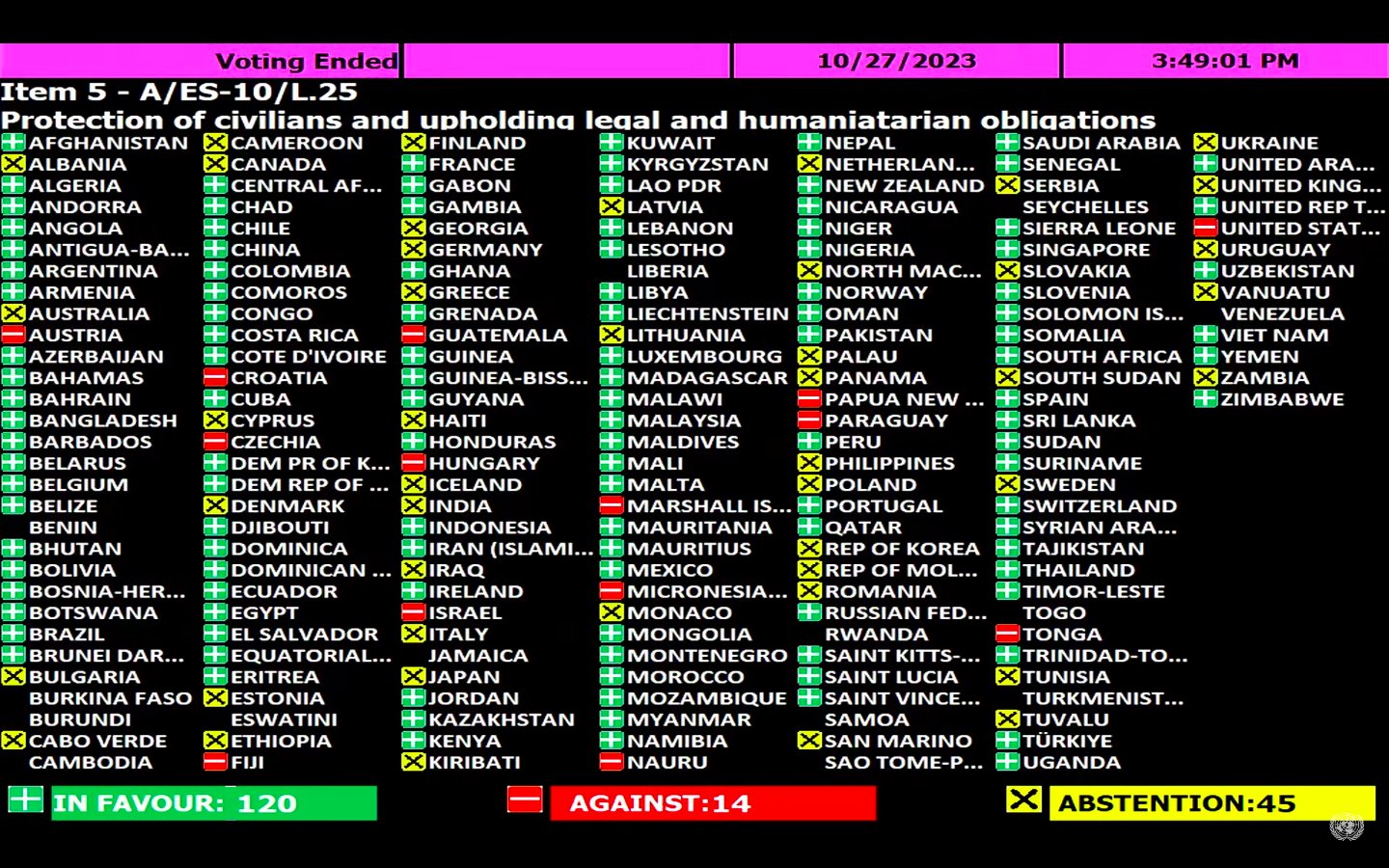The United Nations General Assembly (UNGA) overwhelmingly voted in favour of a resolution calling for an immediate humanitarian truce between Israel and the Palestinian armed group Hamas. Of the 193-member assembly, 120 nations supported the resolution, while 14 countries, including the United States and Israel, voted against it. Interestingly, 45 countries, including Australia, abstained from voting.
The vote comes in the backdrop of the UN Security Council's inability to reach a consensus over the past two weeks as the US employed its veto power to stonewall proposals containing reproaches against Israel.
The UNGA resolution, put forth by a consortium of 22 Arab countries, aimed for an “immediate, durable and sustained humanitarian truce” between Israeli forces and Hamas. Additionally, it called for the “continuous, sufficient and unhindered” provision of aid to civilians trapped within the confines of Gaza. Despite the overwhelming support, Australia did not endorse the resolution, citing it as "insufficient." The move was likely because of the pressure from or position alignment with the United States.
Australia's representative to the United Nations, James Larsen, expressed the nation's concurrence with the resolution's core proposition—that the humanitarian situation in Gaza is grave and necessitates humanitarian pauses. However, Larsen critiqued the resolution for not naming Hamas in its text, particularly in relation to the 7 October attack.
“We abstained with disappointment because we believe this resolution as drafted was incomplete.,” he remarked.
This abstention seems to diverge from prior public statements by Australia's Foreign Minister, Penny Wong. Just days before the UNGA vote, Wong had urged Israel to cease its bombardment of Gaza to allow humanitarian aid access. She described the situation in Gaza as "dreadful" and emphasized the need for a pause in the conflict.
The United States echoed Australia's sentiment, with US ambassador Linda Thomas-Greenfield branding the resolution's omission of Hamas and the term “hostage” as “outrageous.” The US and Canada, aiming to address these concerns, proposed an amendment to the draft resolution. However, this amendment did not pass, garnering 88 yes votes, 55 no votes, and 23 abstentions. Australia supported this proposed amendment.
Earlier, during the proceedings, Jordanian Foreign Minister Ayman Safadi warned that voting against the resolution was tantamount to endorsing the ongoing conflict and loss of life. In contrast, Israel condemned the vote.
Although the resolution is non-binding, its passage serves as a significant gauge of global sentiment, especially as the conflict between Israel and Hamas draws to a close in its third week. The recent assault by Hamas on southern Israel resulted in the death of over 1,400 people.
While the resolution reflects the UNGA's stance on the crisis, it is important to note that the document is purely advisory and does not carry legal obligations for the member states.
Here is the list how each country voted:







